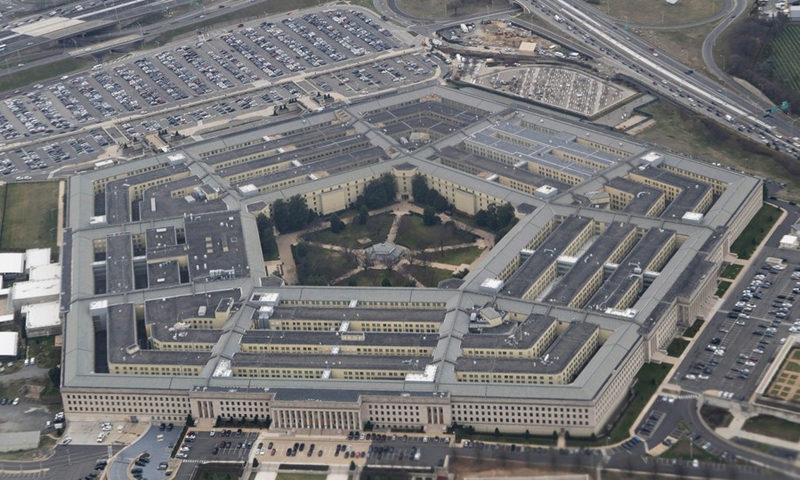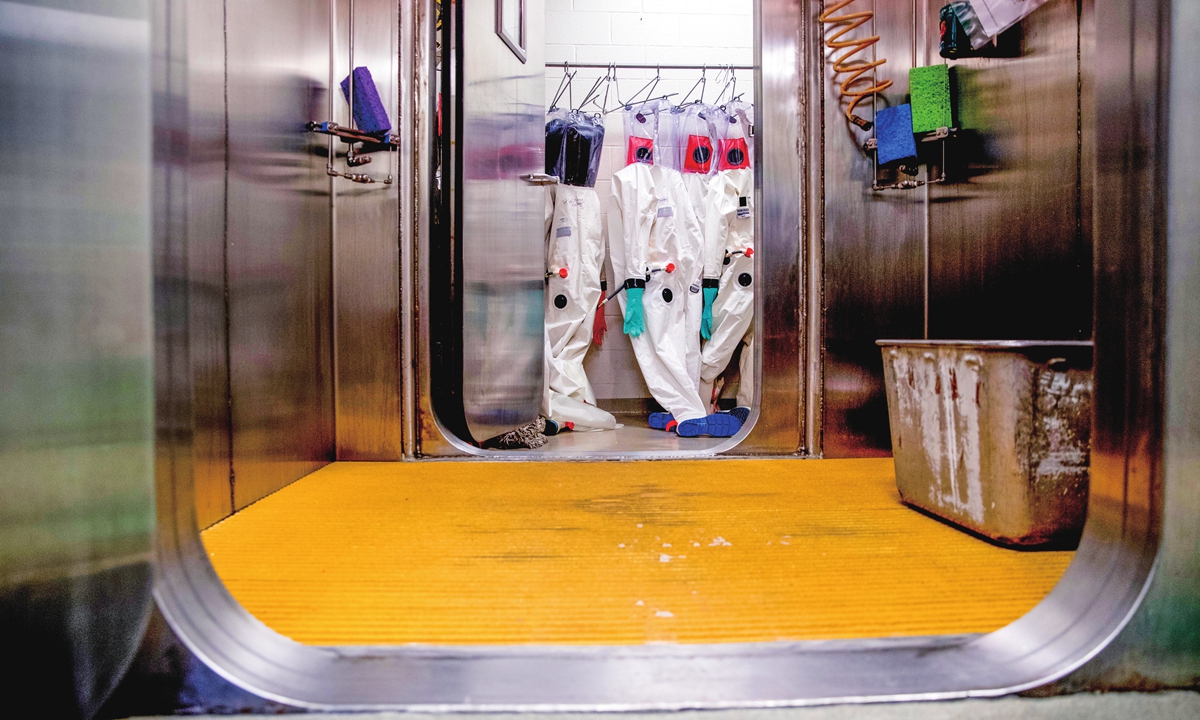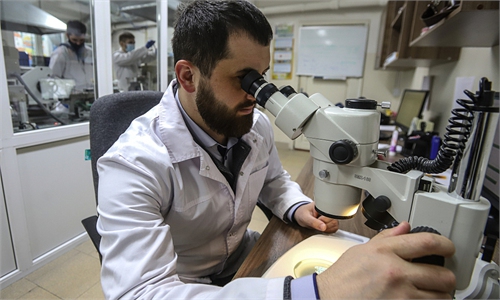Moscow Bothered by ‘Uncontrolled, Unrestricted Expansion’ of US Military Biolab Network Near Russia

Photo taken on Feb. 19, 2020 shows the Pentagon seen from an airplane over Washington D.C., the United States. (Xinhua/Liu Jie)
Moscow and the international community at large have reason to be concerned over US military biological laboratories' operations near the Russian Federation, the deputy chairman of the Russian Investigative Committee, Alexander Fedorov, has suggested.“The concern among Russian specialists, and among the international community, is caused by the uncontrolled and unrestricted expansion of foreign biological infrastructure belonging to the US military in states adjacent to the Russian Federation and located near the borders of the Russian Federation,” Fedorov said, speaking at a forum dedicated to the history of Imperial Japan’s WWII-era bacteriological warfare programme in Khabarovsk on Monday.
Fedorov is the latest Russian official to express his apprehensions over the US’ widespread deployment of military biolabs in Eastern Europe, Central Asia and the Caucasus. In April, the Russian Security Council's secretary, Nikolai Patrushev, told a Russian newspaper that Moscow was aware of the creation of new US military biolabs near Russia and China, and warned that Russian officials had reason to believe that biological weapons were being developed there.
“We have been assured that these are research centres where the Americans help local scientists to develop new ways to combat dangerous diseases. But in truth the authorities of those countries where these facilities are based have no idea what’s going on within their borders.
Naturally, we and our Chinese partners have questions. We are told that the facilities operating near our borders are peaceful sanitary and epidemiological stations, but for some reason they are more reminiscent of Fort Detrick in Maryland, where the Americans have been working in the field of military biology for decades,” Patrushev warned.
In May, the Russian Security Council's deputy chief Yuri Averyanov told Sputnik that Moscow has every right to be concerned about the presence of US and NATO military biological programmes near its borders, given the fact that the deadly microorganisms created at or studied in such facilities could “accidentally” be released into the environment, potentially causing mass casualties among civilians.

Biosafety protective suits for handling viral diseases are hung up outside a chemical decontamination room in a biosafety level 4 training facility at Fort Detrick Photo: AP
US Biolabs Dot the Globe
The United States has pushed the creation of biolabs via its so-called ‘Global Partnership Against the Spread of Weapons and Materials of Mass Destruction’, as well as bilateral ‘Joint Biological Commitments and Joint Threat Reduction’ programmes with individual nations.
Washington has long insisted that these programmes, which started being implemented after the end of the Cold War, are designed only to reduce biological weapons proliferation and production.
However, Russia, China, politicians in some of the countries in which the labs are situated, and reporters - led by independent Bulgarian journalist Dilyana Gaytandzhieva - have questioned these claims.
Last year, Ukrainian opposition politician Viktor Medvedchuk revealed to parliament that as many as 15 US-sponsored biological laboratories were operating on Ukrainian territory, with some of them said to be engaged in the storage of pathogens hazardous to humans and animals. Medvedchuk accused US and Ukrainian authorities of seeking to cover up the extent of these activities, and warned that some of the labs may be experimenting on human beings. He also highlighted repeated mysterious outbreaks of dangerous diseases in the country between 2009 and 2017, including haemorrhagic pneumonia, cholera, and hepatitis A. In 2016, he noted, at least 20 Ukrainian servicemen died from a strange flu-like virus, with 364 more people succumbing to swine flu the same year. Medvedchuk has been under house arrest since May 2021, ostensibly over an unrelated matter.
Along with Ukraine, the nation of Georgia has repeatedly come up in reporting on US military. In 2018, the country’s former minister of state security implored then-US President Donald Trump to open a formal investigation into worrying reports that personnel from the US’ Lugar Center biological lab outside Tbilisi were engaging in experiments on live human test subjects.
Russian officials have repeatedly expressed concerns about the Lugar lab. Last year, the Russian foreign ministry warned Washington that it was fully aware of US efforts to expand military-related research at the facility, and alleged that the US had substantially expanded dual-use biological research at labs across the former Soviet space under the pretext of combating bioterrorism.
Fears COVID-19 May Be US Bioweapon
Iran has voiced its own fears over the extent of US biolab activities in countries near its borders. In March 2020, in the early weeks of the spread of COVID-19, a group of 101 Iranian doctors penned a joint letter addressed to the leaders of Afghanistan, Georgia, Iraq, Kazakhstan, Kyrgyzstan and Pakistan urging them to take immediate action to destroy “all of the US biological laboratories” on their territory amid fears that the coronavirus pandemic may have originated as a form of biological warfare.
China has also tried to shed more light Washington’s highly secretive military biological programmes. This summer, Chinese media and officials fingered Maryland’s Fort Detrick as where the global coronavirus pandemic originated, pointing to the lab’s unexplained mid-2019 shutdown and the appearance of mysterious flu-like symptoms in communities nearby shortly thereafter.
Amid US and World Health Organization demands to continue an investigation into whether the Wuhan Institute of Virology may have been the origin of the coronavirus pandemic, Chinese officials have urged a probe into Fort Detrick, pointing to US researchers’ work in synthesising SARS-related coronaviruses going back to at least 2003, and bat-related coronavirus since at least 2008.

